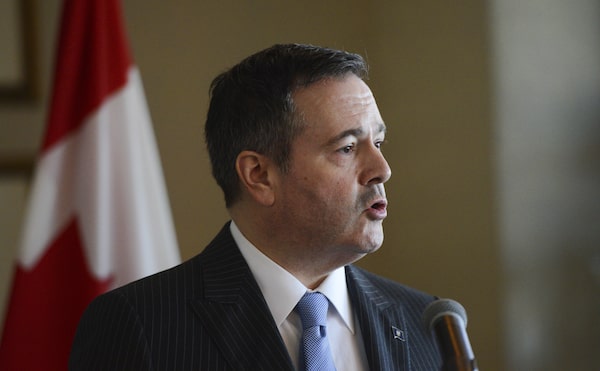When it comes to relations with China, there would appear to be two choices. On the one hand, there is the position of the Liberal government and certain corners of the business community: a hazy mix of complacency, denial and appeasement.
In this view, China is either the next global hegemon or a useful counterweight to American dominance, or at any rate a mouthwatering business opportunity. It is also in a position to do us one or two favours, such as supporting our bid for a seat on the United Nations Security Council.
All in all, then, it won’t do to make too much of a fuss over China’s repression of dissent at home or adventurism abroad. Far better to understand and engage this emerging giant than to risk alienating it.
This is the age-old position of the China hands at Global Affairs. It remains the position, even now, of certain of this government’s advisers. It is how you get a Foreign Affairs Minister who cannot even say the word “Taiwan” in public, a Health Minister who dismisses suggestions that China is fudging its COVID-19 numbers as conspiracy theories and a Prime Minister who soft-pedals criticism of China on everything from its cover-up in the pandemic’s early stages to its long history of espionage in this country to its more recent campaign of intimidation against Chinese-Canadian human-rights activists.
On the other hand, there is the position associated with Donald Trump and his advisers, but increasingly taken up by more respectable sections of conservative opinion. In this view, it is not sufficient indictment of China’s dictatorship that it imprisons and tortures dissidents, that it threatens Taiwan or interferes in Hong Kong, or interns its own Muslim-minority Uyghurs.
Far from the thuggish and immature mobocracy it appears, it must also be ascribed a kind of evil genius, such that it is always one step ahead of the West. In the wilder reaches of the Trumposphere, it is even accused of having deliberately manufactured and spread the coronavirus – Trump adviser Peter Navarro has spoken of a plot to “seed” other countries using Chinese airline travellers – in the service of a grand scheme, as Trump-favourite commentator Tucker Carlson has put it, “to rule the world.”
But even more temperate China hawks seem to have concluded, with Mr. Trump, that the answer to China’s outrages and abuses is to raise barriers to its exports, or that the lesson of the pandemic is not that we should have been better prepared but that we should not have been so exposed – as if China’s manufactured goods themselves carried a kind of virus.

Alberta Premier Jason Kenney speaks at the Rideau Club in Ottawa on March 12, 2020.Sean Kilpatrick/The Canadian Press
It was perhaps to be expected that Mr. Trump’s trade ambassador, Robert Lighthizer, would write that, in the wake of the pandemic, “the era of reflexive offshoring is over, and with it, the old overzealous emphasis on efficiency and the concomitant lack of concern for the jobs lost.” But even Alberta Premier Jason Kenney, perhaps the leading Conservative politician in this country, could be heard recently to call, as part of a general “reset” of relations with China, for “a deliberate effort to onshore production.” (Yes, he added “particularly” on “critical supplies” such as masks and ventilators, but it seemed very much an afterthought.)
The expression – onshoring, or what used to be called “import replacement” – means using policy to force manufacturers to relocate production from China to Canada and other Western countries, usually by making imports from China so expensive relative to their domestic competitors that consumers would be induced to switch from the former to the latter.
In its current, opportunistic form, this creaky bit of protectionism relies heavily on the suggestion that there is something novel about this situation, requiring “new” responses such as tariffs and investment controls. But in truth there is nothing new, or clever, about it. Contrary to Mr. Lighthizer, there is no necessary contradiction between efficiency and jobs, even in a pandemic – as if forcing consumers to pay more for one good would not leave them with less to buy others, killing as many jobs as it saved.
Likewise, contrary to Canadian conservative thinker Sean Speer, the advent of a U.S.-China struggle for geopolitical supremacy has not suddenly made governments more adept at predicting which industries or technologies will dominate our economic future – the premise behind all appeals for “industrial policy,” even those dressed up as “realism.”
We do not have to choose between these two false alternatives: appeasement or mercantilism. It is surely possible to be clear-eyed about the threat China represents without subscribing to crude conspiracy theories. And it is surely just as possible to stand up to China without the mutual ruin of a trade war – to get tough on China, without getting tough on ourselves.
Keep your Opinions sharp and informed. Get the Opinion newsletter. Sign up today.
 Andrew Coyne
Andrew Coyne